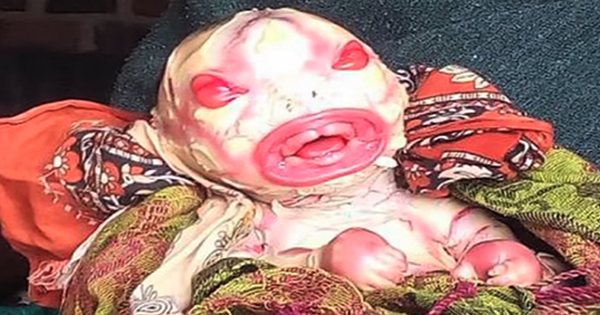A mother in India appeared to be devastated when she discovered that she gave birth to a child with harlequin ichthyosis. Now, she didn’t want to breastfeed the child because she refuses to acknowledge the baby as her own, the Metro reports.
The mother, who’s 28 years old, gave birth to the child in a hospital in Bihar, India. Her child is the only second one born with the condition in India.
The mother said, “I have no idea how this happened. My family and I are completely devastated. I am in shock as I was really looking forward to becoming a mother of a healthy child, be it a girl or a boy.”
The mother refused to feed her own child or even make contact with it for she wasn’t happy with how the baby turned out.
According to Ichthyosis Support Group, “Harlequin ichthyosis is an extremely rare and severe inherited (genetic) ichthyosis. There are approximately five such children born in the UK each year and some may be stillborn. The name comes from the appearance of the skin at birth.”
Babies who suffer from the condition are born prematurely and very small. Their skin is covered in thick and taut plates of hard scale that resembles the skin of a reptile or the harlequin costume of a court jester. The splits between plates causes deep cracks.
“Children who survive are affected with severe inflamed ichthyosis and may be small and scarred in places. They will need ongoing intensive skin treatment with creams and courses of retinoid medicine and many require physiotherapy, counselling and extra tuition.”
Harlequin ichthyosis is really random. Parents who have the gene has one in four chance of having a kid affected with the condition.
“This is another genetic disease due to a single important skin gene being faulty or mutated. In this case, the mutation is in ABCA12, a gene thought to be involved in transport of lipids (fats) into the spaces between the cells in the skin’s uppermost layer. These lipids act as a protective barrier against bacteria and infection.”
Unfortunately, there are no known cure or precautionary measures that can prevent the development of Harlequin ichthyosis. However, it is possible to identify it during the early stages of pregnancy by taking out some of the amniotic fluid that’s enveloping the fetus and see if there is a mutation in ABCA12.
With this technique, families can decide whether or not they want to proceed with the pregnancy.





